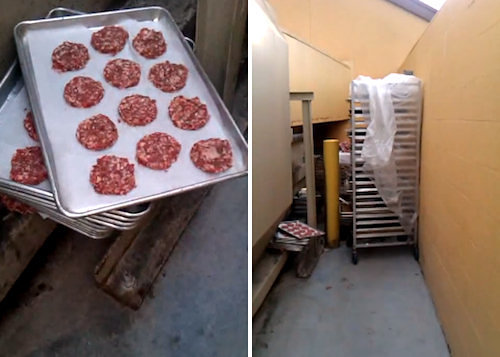Though it may not be a material compass like the one used in the movie The Golden Compass, using a moral compass in business and life is crucial for success. Have you utilized your moral compass lately? In other words, are you inspecting the best value-based path for yourself and your organization? If you’re not sure, you many want to re-evaluate. Your ethical decisions as an employee are crucial to your paycheck today, but also your career in the long run. Let’s play devil’s advocate and examine a recent Golden Corral situation for some insight.
Brandon Huber of the Port Orange Fla. Golden Corral recently posted a video including images of meat patties stored near outdoor dumpsters during a health inspection. Huber claims this is a regular occurrence. Sources including ABC’s article Did Social Media expose Unhygienic food practices at Golden Corral franchise? report similar unsafe food handling practices in various locations. Another anonymous employee responded to Huber’s video by also posting photos of the working conditions at their Golden Corral.
All of this will likely lead to an FDA response and job losses in more than one category (one manager has already lost his job). This situation is clearly unacceptable in the food industry. While Huber would like to simply point the finger at Golden Corral, he neglects to acknowledge employee accountability in the matter. Organization leaders can dictate best practices, but often times it’s the action of individual employees that lead to the greater results. The poor placement and care of raw food was not the practice of one individual whether at the top or in front-line, it was the results of poor practices by the collective organization.
Before any conclusions can be made, there are lots of questions that need to be answered: Why did the employees feel the need to hide the food near the dumpsters? How does employee performance correlate with employee behavior in this particular situation? How is the overall moral of the organization? How do employees generally communicate their ideas and concerns with their team and supervisors? Etc.
Regardless, of whether Huber himself had any involvement with the food handling, his decisions in making a social media frenzy of the situation were not professional or ethical. We don’t know whether he had made any strides in speaking with managers/supervisors regarding concerns or even contacting someone at the headquarters, prior to the current decisions, but that would be the advised pathway. All and all, if he truly had ethical/cultural un-alignment with the organization, he always had the option to seek employment elsewhere. In addition, if his intentions were not for fame, might he have remained anonymous? Even more curious are the reports that Huber’s father attempted to bribe Golden Corral to get $5,000 for the video. While Golden Corral hasn’t come out of this looking great, neither has Huber. It would be reasonable to assume Huber may have a faulty moral compass.
Employees who take pride in their performance and lead by example have the power to generate change. Showing dedication on the job will inspire co-workers to do the same. It may be a slow change and it may not be very fun, but the moral compass has enormous power in leading the self and others in a way that leverages relationships. This concept applies across the board from waiters to executives.






